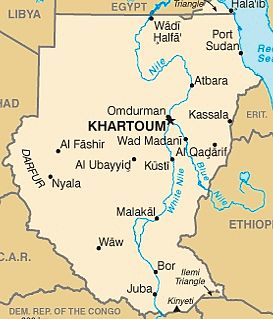Editor's Note: In March, Kurt Pelda, Africa Bureau Chief of the Swiss daily the Neue Zürcher Zeitung (NZZ), traveled to eastern Chad on the border with the Sudanese crisis region of Darfur: a trip that was documented in a diary published in English on World Politics Review and that would see him eventually turning back from the border due to inadequate security conditions. In late October, Pelda returned to the region and crossed the border into Darfur, where he accompanied a Darfur rebel group. The diary of his trip was published on the NZZ Online in German, and World Politics Review here presents it in English. The night was short for us and the wind is blowing thorns against my mosquito netting. Squinting into the morning sun, I hear the sound of motors. Two white African Union helicopters are flying along the path of the road. Through the binoculars, one can make out the initials "AMIS" painted on them for the African Union Mission in Sudan. The pilots must see us: we have slept in an open field and the aircraft are flying very nearby. Women from a neighboring village bring me warm sweetened milk with rice to eat. The guerrilla fighters get a bowl of sorghum porridge with a green, stringy okra sauce. After a short drive and only one flat tire, we arrive in a village where a market is being held. Just next to the market is the parking lot: for the donkeys. The animals are tied to pegs that have been rammed into the ground. We decide to do some shopping: a couple of watermelons, cigarettes, flat bread, detergent for washing clothes, and two canisters of diesel. Then we look for shoes for Umar, whose soles are completely worn down. But there are only plastic sandals available at the market. Given the prickly grasses, these are out of the question.
The Pickup Without a Spare Tire
If Necessary, One Can Also Go on Foot
In Darfur: A Travel Diary (Day 8)

